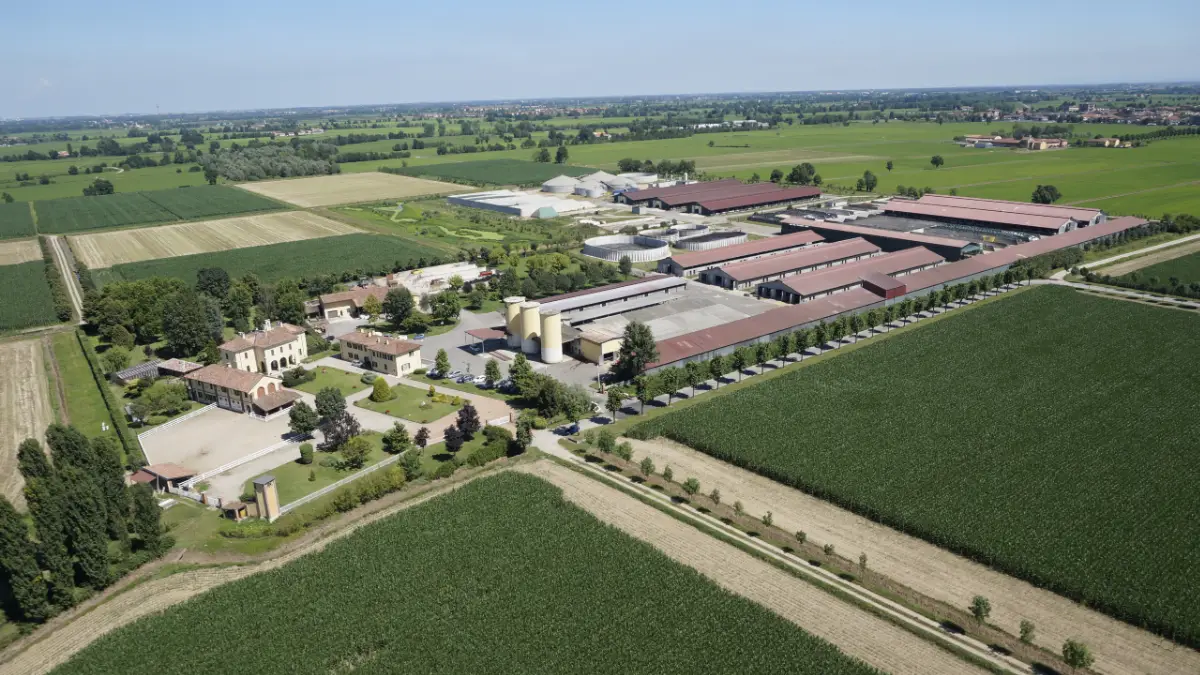
Inalca and Corteva Agriscience together for sustainable livestock farming
Pilot project to reduce emissions from fodder to feed cattle

The results of regenerative agriculture techniques, aimed at reducing the environmental impact in the cultivation of feed for cattle, were presented at Ecomondo
Inalca, the first Italian producer and one of the European leaders in the meat sector, has created, together with Corteva Agriscience and the University of Milan, a pilot project with the aim of improving the environmental performance of the production phase of fodder intended for food of cattle. The results were presented at Ecomondo, in a conference on “Emissions. The moral obligation to decarbonise everything possible”, edited by Economy Group.
“Over the last 20 years, the company has constantly invested in the agriculture and livestock sector, where most of the environmental impacts of the meat supply chain are concentrated", declared Giovanni Sorlini , Head of Sustainable Development at Inalca. "A integration with the primary sector which has allowed Inalca to create an agro-zootechnical infrastructure which today has over 2,700 hectares of land intended for the self-production of fodder. The challenge of sustainability, in fact, is played out in the field and in the stable, through technological and digital innovation, but above all by adopting regenerative agriculture practices. And precisely in this area, thanks to the project developed with Corteva Agriscience and the University of Milan, we have experimented with new opportunities for fodder production and making the meat supply chain more sustainable".
For his part, Matteo Piombino , Customer Marketing Manager of Corteva Agriscience stated: “The results of the partnership with Inalca demonstrate that by combining generative agriculture strategies and technological innovation it is possible to increase the sustainability of the key Made in Italy supply chains. We are proud to be able to contribute with the skills developed in almost 20 years of service and dedication to the characterization of soils and to provide agronomic support to farms for the responsible nutrition of crops".
The objective of the project was to introduce and evaluate the impact of innovative agronomic practices for the production of fodder for beef cattle breeding to reduce emissions, improve crop productivity, optimize the use of fertilizers, improve soil management and increase carbon sequestration.
Over the course of two years, working on the crops of two Inalca farms, we intervened on the optimization of the use of fertilizers, in particular nitrogenous ones, which represent an important source of greenhouse gas emissions into the atmosphere. Improving the efficiency of nitrogen fertilization is possible through the adoption of agronomic strategies oriented towards the valorisation of livestock waste or digestates, produced by the livestock companies themselves with the support of innovative technologies, such as nitrogen stabilisers.
Corteva has activated agronomic services for mapping production inputs (soil, digestates) and for collecting agronomic information relating to fodder production (cultivation operations, yields and quality of production). As a technological innovation, the use of the nitrification inhibitor 'Instinct' was introduced which, by stabilizing the nitrogen distributed with the company's digestates, reduced the use of synthetic fertilisers, improved crop yields and reduced CO2 emissions. eq on average of 19% from fodder production. The project analyzed CO2 eq emissions per tonnes of fodder produced before and after the introduction of nitrogen stabilization technologies.
The data collection and Life Cycle Assessment (LCA) analysis were carried out by a research team from the Department of Agricultural and Environmental Sciences of the University of Milan.
The study, recently published in the journal Science of the Total Environment (https://www.sciencedirect.com/science/article/abs/pii/S0048969723047915) highlighted a significant reduction in CO2 eq emissions for all three forages considered (corn silage, mash, fodder wheat), while maintaining a production level in line with or higher than the conventional system, demonstrating that sustainability and productivity are not incompatible, but rather convergent.
EFA News - European Food Agency